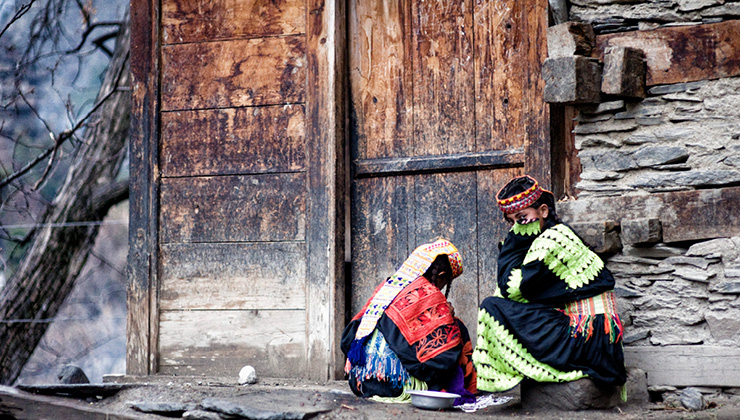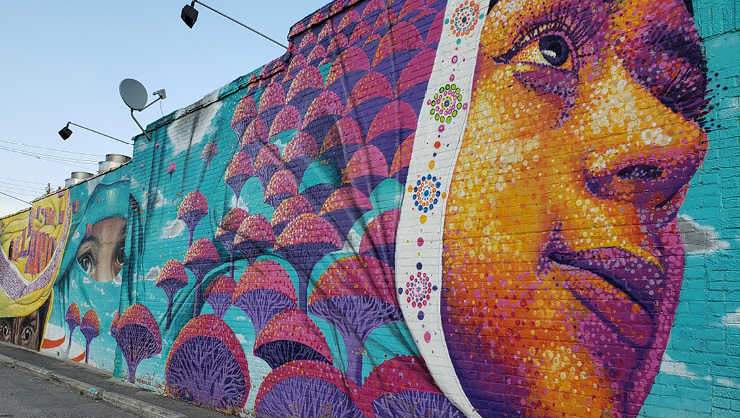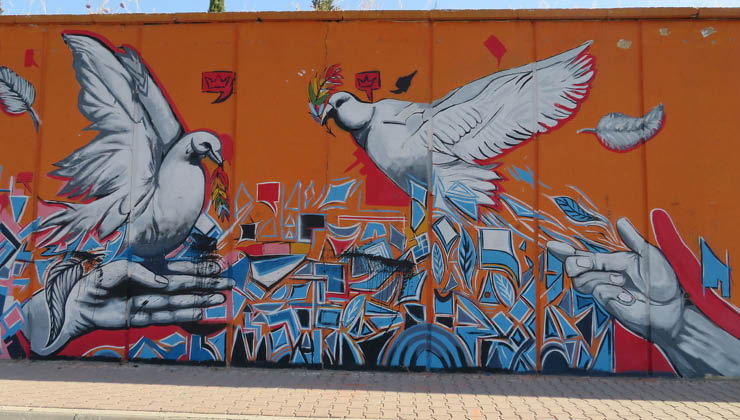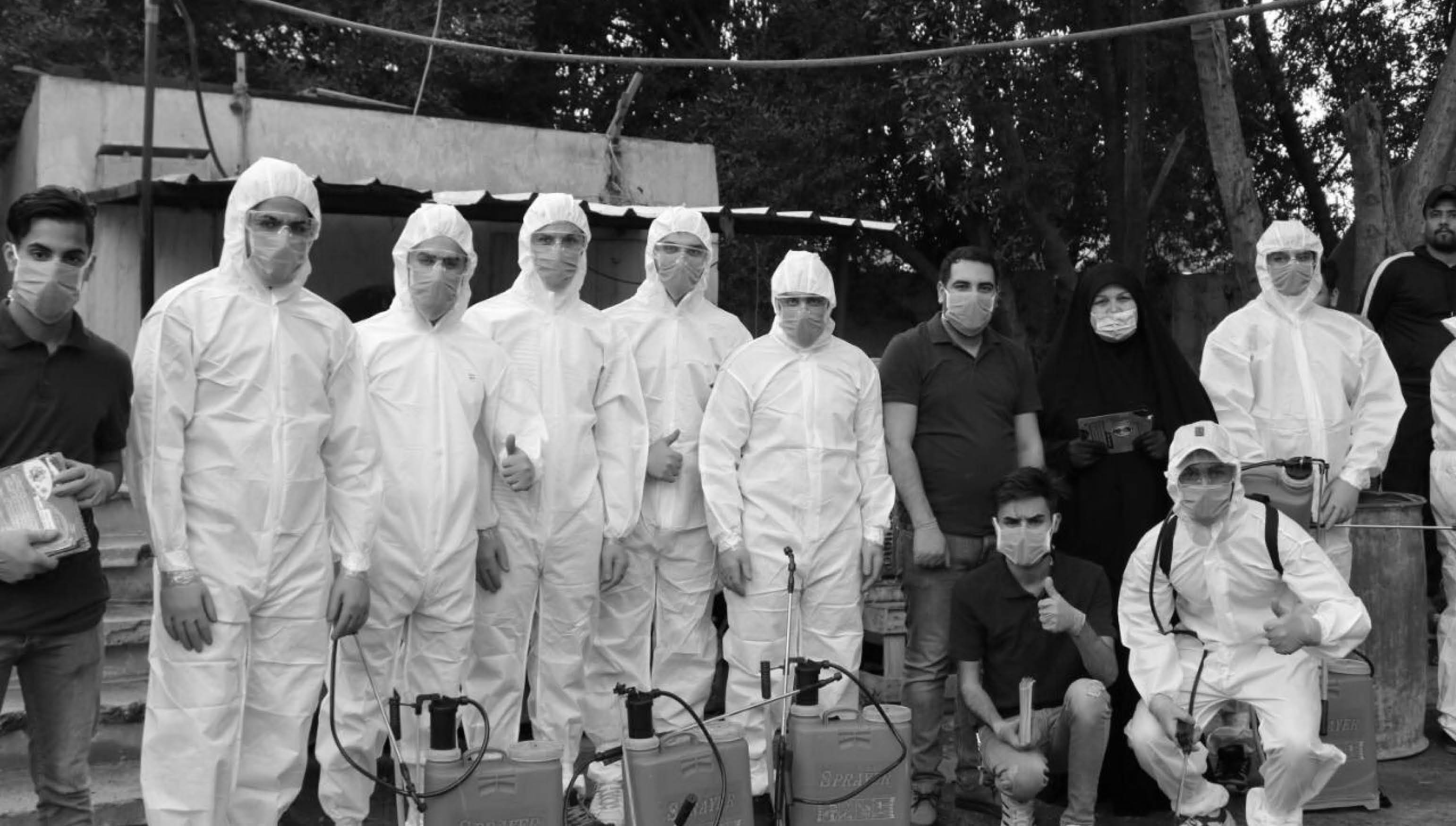In Poland, the 2020 Pride month coincided with the month of an electoral campaign ahead of the Presidential elections. The campaign was marked by frequent attacks on the Lesbian, Gay, Bisexual, Transsexual and Queer (LGBTQ) community – including the incumbent President’s statement that “LGBT are not people – it is an ideology”. As the country is experiencing a wave of protests denouncing the government’s anti-LGBTQ policies, and an arrest of a trans activist, Agnieszka Fal-Dutra Santos examines why the institutionalisation of homophobia and transphobia in Poland is a security issue, which undermines Poland’s ability to fulfil its Women and Peace and Security (WPS) obligations.
Deterioration of LGBTQ rights in Poland
In June 2020, just a few days ahead of the first round of the Presidential elections, left-wing Polish media reported the suicide of a young gay man, Michał. His death – which his family attributed to the homophobia he faced – is far from being an isolated incident. Rather, it is part of a deeper-running trend. According to a study conducted by the Center for Research on Prejudice at the University of Warsaw, in partnership with Campaign Against Homophobia (KPH), Lambda Warsaw Association and Trans-Fuzja Foundation, nearly 50% of LGBTQ persons in Poland have suicidal thoughts, compared to 1% among the general population. LGBTQ persons are also facing a surge of hate and violence: 70% encountered at least one type of violence between 2015-2016. However, less than 4% of those who experienced homophobic violence reported it to the police. An average of 14% of LGBTQ persons experienced sexual violence, a rate even higher (20%) amongst asexual and transgender persons, and bisexual women.
The violence against LGBTQ persons in Poland is situated in the broader context of insufficient legal protection of minorities and growing institutionalisation of homophobia and transphobia. According to Poland’s Commissioner for Human Rights, the public acceptance of non-heteronormative persons has decreased in 2019. This decline is linked to the increase in hate speech and homophobic and transphobic rhetoric, which has been “repeated and amplified by some politicians and media personalities”, as well as hate speech against migrants, racial and ethnic minorities, and LGBTQ people, which has been increasing in Poland since 2015.
70% encountered at least one type of violence between 2015-2016. However, less than 4% of those who experienced homophobic violence reported it to the police
Polish legislation does not offer sufficient protection from such attacks. In 2019, the Commissioner for Human Rights noted “slow progress” in the legal protection of LGBTQ persons in Polish case law. However, this progress has been undermined if not reversed by recent policy and legislative trends. In June 2019, following a long legal battle in the case of a printer shop refusing service to an LGBTQ rights organisation, the Constitutional Court deemed unconstitutional Article 138 of the Polish Code of Misdemeanours, which prohibits service providers from refusing to provide services without a “well-grounded cause”, and which had been used to prevent discrimination based on sex, ethnicity, and sexual orientation and gender identity.
Moreover, since early 2019, Polish municipalities began to adopt resolutions that declare them as “zones free from the gender and LGBT ideology”. As of June 2020, 104 cities, municipalities and voivodships (largest administrative divisions) in Poland have adopted such resolutions – making nearly 30% of Poland’s territory an “LGBT-free zone”. The resolutions pledge to oppose any action to promote LGBTQ rights, and call on local councils, the national parliament and the government to “control the sources and methods of financing of organizations of homosexual nature [sic].”
In July 2020, two of the resolutions were revoked following a campaign by LGBTQ rights organisations and an intervention by the Polish Commissioner for Human Rights. Nonetheless, they represent a dangerous trend in the protections for LGBTQ rights in Poland – further apparent in the “Family Charter”, signed by the Polish President. The Charter includes a commitment to oppose same-sex marriage, adoption of children by same-sex couples, and prohibits the promotion of “LGBT ideology in public institutions.”
The homophobia and transphobia in Poland can also be situated in the context of a broader movement against gender equality and creates a climate in which the rights of women are under threat. The proliferation of homophobic and transphobic legislation has been accompanied by other legal and policy changes encroaching on women’s rights and gender equality. These worrying developments – such as the repeated attempts to further tighten Poland’s abortion law (which is already among the most conservative in Europe), or the decision to withdraw from the Istanbul Convention on preventing and combating violence against women and domestic violence – have been driven by the same far-right groups as the campaign against LGBTQ rights.
The homophobia and transphobia in Poland can also be situated in the context of a broader movement against gender equality and creates a climate in which the rights of women are under threat
Institutionalisation of homophobia and Poland’s WPS commitments
What does the institutionalisation of homophobia and transphobia mean for the implementation of the WPS agenda in Poland?
Poland adopted its first National Action Plan (NAP) on WPS in 2018, for the period 2018-2021. The NAP’s orientation is primarily focused on women’s participation in armed forces and Poland’s foreign policy – as are most of the NAPs in the region. It has four main pillars:
- Meaningful participation of women in conflict prevention and peacekeeping;
- Implementation of the Women, Peace and Security agenda through the Polish humanitarian and development aid;
- Protection and support of the victims of conflict-related sexual and gender-based violence; and
- Promotion and development of the WPS agenda in Poland and through international cooperation.
The NAP does not mention the LGBTQ community or rights directly. However, key target groups in the NAP – such as women and victims of conflict-related sexual and gender-based violence – may encompass lesbian, bisexual and transgender women. Moreover, the rising prevalence, legitimisation and institutionalisation of hate speech and violence against LGBTQ persons creates a climate of discrimination, which precludes meaningful implementation of all four pillars.
There is a growing recognition among WPS supporters and practitioners that the implementation of the agenda must be grounded in a broader principle of non-discrimination. As I argued elsewhere, WPS objectives – both those focused on foreign aid and policy and domestic issues – can only be realised if structural gender inequalities are tackled. Thus, the resolutions should be interpreted in the context of the broader normative framework set out by the Convention on the Elimination of all forms of Discrimination Against Women (CEDAW).
The CEDAW Committee has recognised, it in its General Recommendation 28, that “[t]he discrimination of women based on sex and gender is inextricably linked with other factors that affect women, such as race, ethnicity, religion or belief, health, status, age, class, caste, and sexual orientation and gender identity”, and called on State parties to “legally recognize and prohibit such intersecting forms of discrimination and their compounded negative impact on the women concerned.” In this context, addressing the discrimination against LGBTQ community becomes essential to the implementation of the WPS agenda.
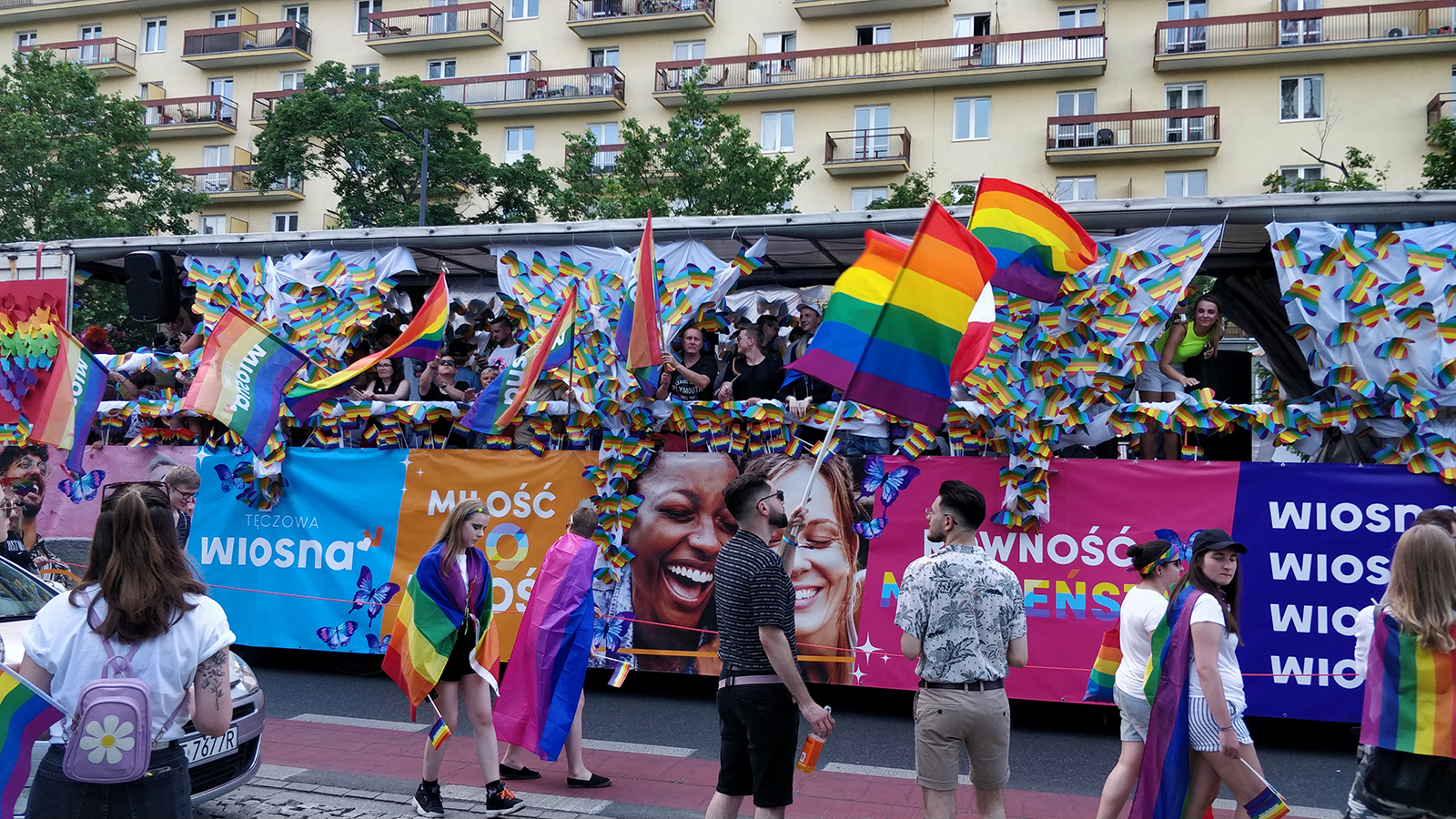
Equality Parade (Parada Równości) 2019 in Warsaw, Poland. Image credit: Jcornelius
Pillar One: Participation
The Polish NAP recognises, to a certain extent, the importance of the broader principle of non-discrimination for meaningful participation of women. One of the objectives under the first pillar is to create and implement a “legal framework and practices aiming at implementation of equal treatment policies (antidiscrimination)”. The progress on this objective is defined as “progress made by Polish institutions in the implementation of the CEDAW” – which includes the obligation to address other forms of discrimination against women, such as those based on sexual orientation and gender identities.
Confirming this, the CEDAW Committee, in its Concluding Observations on the combined seventh and eighth periodic reports of Poland in November 2014 noted the “limited effectiveness, if any, of measures to counter negative stereotypes against Roma women, lesbian, bisexual, transgender and intersex women and women with disabilities.” As evidenced by the reports of the Poland’s Commissioner for Human Rights, the recent developments have aggravated rather than improved the situation.
The climate of discrimination can also hinder the ability of lesbian, bisexual and transgender women to participate in decision-making, including on peace and security, and to join Poland’s security forces, as they may risk hate speech or violence if they do so. This inhibits the implementation of key objectives under the NAP’s first pillar on “Meaningful participation of women in conflict prevention and peacekeeping.”
Pillar Two: Humanitarian and Development Aid
The second pillar of the NAP is aimed at implementing the WPS agenda through Poland’s humanitarian and development aid. This is to be achieved through support and protection for the victims of conflict-related sexual and gender-based violence, among other things.
Since in situations of conflict, the “homophobic prejudice is commonly cited as an explanation for the targeting of men for sexual violence”, homophobic policies and practices may preclude Poland from being able to effectively prevent and respond to such violence – and thus from fulfilling the second pillar of its NAP.
Pillar Three: Support to survivors
The NAP also sets out “Support for victims of conflict-related sexual violence, who apply for international protection in Poland.”
Well-founded fears of persecution on the grounds of sexual orientation and gender identity (SOGI) may be a sufficient basis for obtaining asylum in Poland. However, in practice “there are cases of refusal and expulsion of foreigners with legitimate claims for international protection based on their SOGI”. Moreover, there are no measures to prevent violence against LGBTQ asylum seekers. Thus, it is unlikely that LGBTQ survivors of conflict-related sexual violence who apply for international protection in Poland will receive adequate support – and they may become a target of further violations once in Poland.
Pillar Four: International Cooperation
Finally, the NAP also commits Poland to undertake “Efforts (…) at international fora [to raise] the effectiveness and increase the accountability of perpetrators for acts of conflict-related sexual violence.” Poland’s rhetoric and contributions to the international fora are also coloured by the political climate in the country – including the rising institutionalised homophobia. This affects the country’s ability to effectively work towards ensuring accountability for sexual and gender-based violence.
In October 2019, Polish Members of the European Parliament abstained from a vote on a resolution condemning persecution of LGBTQ persons in Uganda. While the resolution focused on state-mandated persecution, including the death penalty for homosexual persons in Uganda, not acts of conflict-related sexual violence, it is a worrying sign, signalling that the domestic homophobia is seeping into Polish foreign policy, thus undermining its ability to fulfil its WPS commitments.
it is unlikely that LGBTQ survivors of conflict-related sexual violence who apply for international protection in Poland will receive adequate support – and they may become a target of further violations once in Poland
In order to effectively fulfil its obligations under the WPS resolutions, Poland must provide effective protections to its LGBTQ citizens.
As we near the 20th Anniversary of the United Nations Security Council Resolution 1325, the WPS community should not remain silent on the impacts of the homophobia and transphobia on the implementation of the agenda. Rather, we should seize this opportunity to broaden the conversation about WPS. This means moving “from a narrow focus on two supposedly sex-based categories – those of ‘women’ and ‘men’ – to one about a broader focus on gender as a feminist project that refutes the assumption of a sexual binary.”
It also means recognising that domestic policies – and in particular the way they treat minorities – have a profound impact on WPS obligations – in Poland, and elsewhere. Peace is more than an absence of war – it requires inclusive institutions, access to justice and security for all. Preventing conflict and working towards a gender-responsive peace – the foundational goal of the WPS agenda – makes it necessary to address the deeper, structural sources of conflict and insecurity. This includes, importantly, marginalisation, discrimination and violence against LGBTQ persons.
The author thanks Ms. Dominika Bychawska from the Helsinki Foundation for Human Rights, Ms. Magdalena Świder and Mr. Paweł Knut from the Campaign Against Homophobia for their valuable insights, which helped shape the article.
The views, thoughts and opinions expressed in this blog post are those of the author(s) only, and do not necessarily reflect LSE’s or those of the LSE Centre for Women, Peace and Security.
Image credit: Jcornelius


